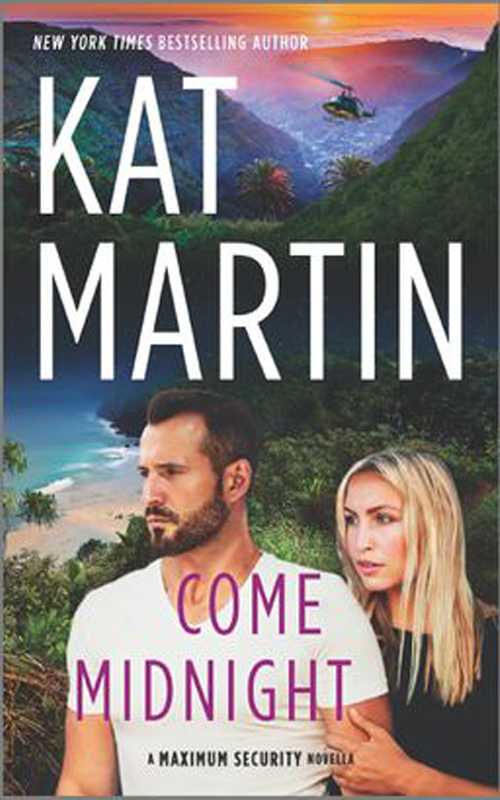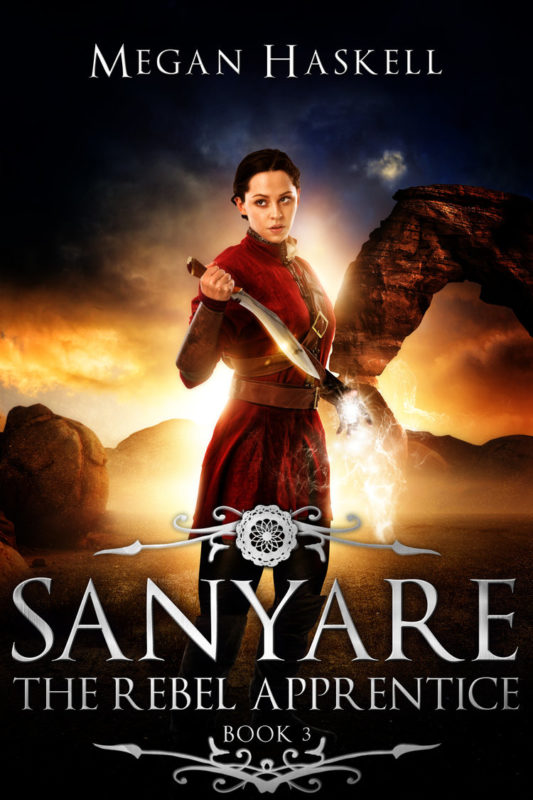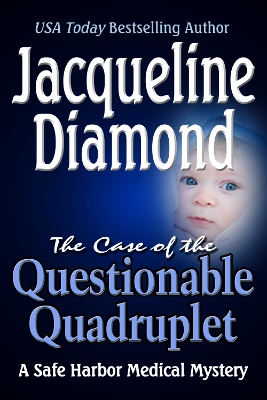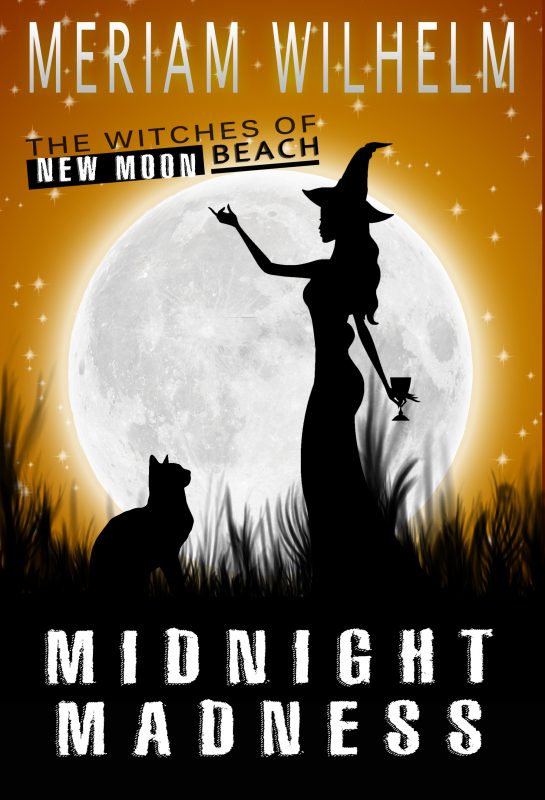Too Much Juice
April 25, 2023 by Kidd Wadsworth in category Infused with Meaning by Kidd Wadsworth tagged as flash Fiction, kidd wadsworth, short story, weird dreams, Witches
Too Much Juice
by
Kidd Wadsworth
I suppose there were opioids in my IV. I remember eating a three-foot-long, hot-pink centipede. I was a trifle worried. It was Lent. Does centipede count as meat?
While I chewed—centipedes are a might gristle-ly—there appeared by my bed three women. They “poofed” in; I thought them witches. Like a Hollywood wind machine was in the room blowing only on the three of them, their wild, flaming-orange hair and amethyst robes flowed out behind them.
They spoke, talking on top of each other, one starting before the other stopped.
My southern upbringing immediately identified them. Must be Yankees, I thought.
“Oy vey can you believe…,” said the first witch.
“Without her hair cut…,” said the second.
“She came to the hospital, and there’s people everywhere…,” said the third.
“…and her hair…,” said the second.
“You can’t cut your hair?” said the third.
“I know a place…,” said the first.
This started such a discussion about which place.
I picked up the small hand mirror Mom left for me on my bedside table.
I do need a haircut.
“My tante Zelda…,” said the first witch.
“What?” said the second witch. “Your tante? Why she’d be better off having her hair cut by monkeys at the Bronx Zoo.”
And the third witch nodded, her bangle bracelets clinking, her crystal earrings casting rainbows on the ceiling.
“Do you have any mustard for my centipede?” I asked.
“Why yes,” said the third witch, pulling a jar from her pocket. “Grey Poupon?”
As I spread spicy brown mustard on my centipede, the first witch called her tante Zelda on the phone, “How’s next Wednesday, Dear?” she asked me.
I hesitated, trying to remember when I was scheduled to be discharged. “I don’t know.”
“You’ve got to go,” said the first witch. “You have some gray, no offense…”
To which the second witch said, “But not to Zelda. Anyone but Zelda.”
I’m a Sci Fi fan—live long and prosper, dude. One of my favorite TV shows features evil aliens with glowing eyes. As I struggled to remember my upcoming calendar, I looked out the door of my hospital room. In the room across the hall, I saw my doctor. He turned toward me—and his eyes glowed.
“Oy vey, you don’t look so good…,” said the second witch.
I paused a bit of mustard covered centipede halfway to my mouth. As my doctor started walking across the hall to my room, the witches grabbed their light sabers. I dropped my fork and pressed the button on my IV.
Time for more juice.
Title Photo by Stephen Andrews on Unsplash
Kidd Wadsworth’s Books
The Gifts by Kidd Wadsworth
February 27, 2023 by Kidd Wadsworth in category Infused with Meaning by Kidd Wadsworth tagged as fiction, kidd wadsworth, Seasons Readings, short story, Short Story Award, short story contest
She placed the three gifts on the mantle, each beautifully wrapped: one in gold foil paper with a white ribbon it’s bow a dove, the second in green and white striped paper like a mint candy cane was topped with a green paper pine tree, the third in classic red and white Merry Christmas paper was adorned with three large red bows. Otherwise, the room and house were undecorated. She couldn’t bring herself to carry all the boxes of ornaments and lights down from the attic. Mike used to that. He would shout, “Ho, ho, ho and where’s my hot toddy!” Christmas decorating had always begun the same way with Mike carrying box after box down the stairs and her in the kitchen juicing lemons and then screaming, “I forgot to buy bourbon!”
By the time she returned from the store, he’d have the tree up, Christmas music playing, and strings of lights spread out on the floor. “Did you buy replacement bulbs?”
She turned on the gas fireplace. It was cozy room—a lonely room. She pushed down the yearning inside of her soul. “Don’t go there,” she whispered.
She bulwarked heart with memories of other Christmases. Presents and more presents, how rich her parents had been. And each Christmas morning ended the same way, with wrapping paper strown about and delicious smells of ham wafting from the kitchen, and presents, so many presents and not a single gift she liked: clothes, all in shades of navy and mauve, clothes she would never wear, high-heeled shoes that hurt her feet, make-up—didn’t her mother ever look at her face? She didn’t use makeup. At her church they had a Christmas tree with tags on it: stuffed animal, girl’s coat size 8, mittens, boy’s backpack, etc. Surely her Christmases were like the Christmases of those children. All the gifts bought by people who didn’t know them, who didn’t really understand them. Year after year, she slowly learned. Don’t get your hopes up. No one knows you. You are their daughter, but they don’t see you.
Now twenty-eight years old she understood. She had reconciled her expectations to the reality of the world. It was impossible to really know another human being. So, every Christmas she bought herself presents. All sorts of wonderful things like copper cookie cutters and an antique bookshelf. She cooked what she loved including pumpkin pie with extra cloves. She never offered anyone a slice of her pumpkin pie. That would have been cruel—too, too cruel.
And every Christmas she put Mike’s gifts back up on the mantle and dreamed of what could be inside. Their first Christmas together he had stormed out when she refused to open his present. “Please understand, I just can’t be disappointed anymore. What we have is so special, I don’t want to damage it. I can’t bear knowing that you’re the same as my parents. That you don’t really get me.”
He had come back, of course he’d come back. He’d held her.
The next Christmas she’d put the green and white striped present on the mantle, and their third Christmas the present with the red and white Merry Christmas paper. By then Mike had adapted. He brought home hundreds of small things for her. A new mixer, he’d gotten her the red one to match the paint she’d picked out for the kitchen walls. A cup holder for her car that expanded to hold her giant coffee mug. Caffeine and cloves, yup! He was Santa all year long.
“Someday you’ll trust me,” he’d said. “Someday, you’ll open the gifts.”
But that someday didn’t come—no one is supposed to die at twenty-six. She looked up at the gifts on the mantle. “The last two probably just have rocks in them to make them rattle. I mean he wouldn’t keep wrapping up stuff knowing I wasn’t going to open the presents.”
She turned away and turned back again.
“My memories are all I have, Mike. I don’t want to find out that it wasn’t really as good as I thought it was. I don’t want to know that you were only human. You tried hard. I know you did. And this way, I can keep on pretending that you loved me, that you really understood.”
She sipped her hot toddy.
This is the beginning of a story I’m considering for the Bethlehem Writer’s Group new anthology. By the way, did I mention the Bethlehem Writer’s Group’s short story contest is now open for submissions? Click here for details: https://bwgwritersroundtable.com/
Kidd Wadsworths Stories
Trash Day by Kidd Wadsworth
January 29, 2023 by Kidd Wadsworth in category Infused with Meaning by Kidd Wadsworth tagged as humor, kidd wadsworth, Neighbors, short story, trash day
My neighbor, Sterling, complains. It seems I don’t bring my trash cans up promptly. But hey, I’ve got a life, and they’re TRASH CANS!
I’ve got a big brain, too. One morning as I watched Sterling take his trash to the curb and leave for work, I got an idea, a how-the-Grinch-stole-Christmas-idea. I grinned and patted my little dog on the head.
As the garbage truck rounded the corner, I ran down to the curb and drug my neighbor’s still-full garbage cans back up his driveway. When the truck had passed by, I drug them down again.
That evening, eager to see Sterling’s expression, I left work early and returned to find him standing at the curb gazing bewildered at the trash still in his trash cans while mine, and everyone else’s, were clearly empty. The next week, he put his heaping cans at the curb. Quickly, I once again hauled them back up his driveway, returning them to the curb when the garbage truck had passed.
That night, his shouting rocked the neighborhood. “No, they’re not picking up my trash! It’s been two weeks! 110 Paxinosa Avenue!” I felt sorry for the trash guys. Well—almost.
The next week, he had two cans full of trash and three extra bags. It was a trash party! I crossed my fingers, praying he wouldn’t wait around for the truck. He paced on the sidewalk, but after several glances at his cell phone, he got in his light blue Prius, and drove away. I’d barely gotten the trash up his driveway when I heard the truck pull around the corner. On a hunch, I stowed the cans inside his garage and snuck out the back gate.
Wow, talk about dedicated. Those garbage guys actually walked up his driveway and looked around for the cans. They clearly had a note in their hands. They checked his address. Knocked on his door. All this for trash. Impressive.
When they left, I put the cans and the bags at the curb. Took two trips. That night, a volcano erupted next door. I felt a little guilty—not a lot guilty—but a little guilty. I mean, I felt guilty in between giggles.
On trash day eve, nightmares of my neighbor assaulting me with a garbage can lid and a turkey bone rocked my sleep. I woke bleary eyed, to see my neighbor standing at the curb, surrounded by trash. I decided it was time I fessed up. About then, the garbage guys arrived. I ducked behind my window curtains. It was ugly! The shouting, the claims of innocence, “There was no trash!” Shall I speak of the birds shot in the air, the words beginning with … well you get the picture.
About a week later, my neighbor had a backyard barbeque. I brought beer. There were four of us neighbors (right, left and across the street), beers in hand, feet on Sterling’s brick retaining wall, when Sterling told the story.
“No?”
“Really?”
I thought no one knew. But everyone has windows facing the street. When Sterling went inside for more chips, Frank winked at me. Mark held out his hand. “Fifty, or I tell him now.”
I paid.
*
Occasionally, I try humor. Let me know if I got it right.
You can find some of Kidd’s stories in the following anthologies.
Rite of Fir
December 30, 2022 by Dianna Sinovic in category Quill and Moss by Dianna Sinovic, Writing tagged as Dianna Sinovic, flash Fiction, köknar, perspective, short story, Winter
Twig stood silent in the silver light of the full moon, listening to the rustle of mice or maybe voles in the dried grasses and brown leaves around her. No snow yet, but with the crystal clarity of the December night sky slowly being consumed by the advancing clouds, it was likely by morning.
Dipping into the deep shadows of the trees, she walked quickly back to the cabin. The stack of wood on the porch should be enough to last through the storm.
In the smaller of the two bedrooms, Kayla lay asleep, snoring softly. Twig closed the door to the room and brought in more wood from the porch for the fire.

It was nearly midnight, and Charlie had yet to show up. Just like him, to promise and not deliver.
Twig decided to wait up in case he texted that he was lost. From the cabinet near the kitchen, she took out twine, cloth ribbon and glue. She’d make a köknar, for the season, even if just for their short stay. Her grandmother had taught her how when she was nine, and Twig had made one every year since then. One day she would show Kayla how to make her own.
She set her supplies on the coffee table and sat cross-legged on the rag rug to begin her work. The bough of balsam fir she’d cut in the afternoon wasn’t exactly the right shape, but Grandma Pati said any shape would work if you looked at it from the right perspective. That was true for many things in life, Twig knew. Like her own situation.
Likewise, the story of the köknar could be appreciated from different angles, depending on the weaver of the tale. It was a talisman of good luck. Or it represented winter, with the needles and twine standing in for ice and the thread of family and friendship. Or the red cloth ribbon spoke of the new buds of spring, still months away. The version Twig preferred was that the köknar whispered an alluring call to the sun, inviting it to stay aloft a few minutes longer each day.
By the time she heard Charlie’s SUV outside, she had finished the form. When she opened the cabin door to welcome him, the clearing was covered in fresh snow, the flakes still falling thickly. She hung her creation on the nail she’d driven in last year, their first year in that place, free finally from a past that was better forgotten.
Charlie slipped a strap over his shoulder and grabbed the handle of another suitcase. The falling snow turned his head white and speckled his beard.
“You’re here,” she said. Her shoulders relaxed. The weekend would be good after all.
“The interstate’s a mess,” he said, reaching the porch and setting down his bags. “No cell service. I was afraid I’d have to pull off and spend the night and then come the rest of the way tomorrow. Kayla’s asleep?”
She nodded. His embrace pulled her tight and she felt him shiver slightly. “You’re cold. Get inside. I’ve kept the fire up, knowing you’d show up soon.”
He paused at the doorway, staring at the köknar. “You made one.” His voice held wonder, and Twig felt her eyes smart. He’d watched her fashion one last winter, asking questions, holding a knot in place while she glued.
“I did. Just this evening.”
Charlie picked up his bags and smiled at her. “Then we’re safe.”
As she shut the door after him, Twig briefly touched the woven bough. “Do your best,” she whispered.
Some of Dianna’s Books
Pressured
November 30, 2022 by Dianna Sinovic in category Quill and Moss by Dianna Sinovic tagged as Dianna Sinovic, flash Fiction, Pressured, short story

Armed with an LED light array half its length, the robotic sub maneuvered closer to the vestimentiferan colony.
“Hundreds and hundreds of them, it looks like,” Dr. Parish said. “Can you get any nearer?”
“Trying,” Angela said, and sighed in frustration. “The rocky terrain around the vents is tricky. I’m afraid of hitting a jagged outcropping and damaging Deep Fin. We can record from here, and I can boost the magnification. That’s safer.”
“You are now the one in charge of this project?” Dr. Parish said.
Angela said nothing, knowing it was futile to argue with Parish. Besides, she was the pro at controlling the sub unit. Inept at fine controls, Parish nearly crashed it the first few times they had sent it out, and he finally acknowledged that she would be the permanent “pilot.”
She turned on recorder and increased the zoom. At least two meters in length, the tube worms formed dense clumps of slender white cylinders, their deep red gills protruding from the tops. White crabs and other vent creatures clung to the colony like baubles on a giant bracelet.
Parish sighed. “I’d love to spend all of our allotted time on these.”
“But the unit only has about forty-five more minutes before it runs out of battery,” Angela finished.
While the worm colony drew their attention, it was the vents with their bubbling, superheated water they were more interested in.
“Go ahead then,” Parish said.
They sat side by side in the control booth aboard the Searcher research vessel in the Pacific. The day was calm, a counterpoint to the excitement Angela felt at finally getting to examine the vents—even if via robotic sub. She had to keep Parish on track. He often drifted, like a boat in a swift current without an anchor.
Slowly, with a delicate tuning of the controls, Angela moved the sub to the vent they had marked on their map. It had formed within the last year, since they had last examined the area, and was remarkable for its size. The monitor registered a rapid warming of the water as the sub inched closer to it.
Angela, intent on the vent itself, was startled at Parish’s sudden intake of breath.
“What the hell was that?” he shouted, making Angela jump.
“Where?” She concentrated on maintaining the sub’s location. “On the screen?” When she glanced at him, his eyes were wide, alarmed.
“A figure, but it couldn’t be,” he said.
She had seen nothing but the rough terrain the sub was navigating. No time to be studying anything else.
“We’ll run it back later,” she said. Parish must have imagined whatever he thought he saw. “Figure—are you talking human?”
Parish ran a hand over his buzz cut. “It couldn’t be. The pressure down there is like a trash compactor on steroids. But what was it?”
Sensing that Parish was no longer interested in exploring the vents, Angela moved the sub out of harm’s way, slipping back from the rocky outcroppings. “Let’s hold here for a few minutes. I’ll keep a sweep going, and maybe it’ll show up again.” While I’m watching.
“Sure, sure.” Then he fell silent, studying the screen intently.
Angela continued panning the light array across the field of vision. The worm colony lay a dozen meters away, and the rest of the view was the profound darkness of the deep.
A shiver ran down Angela’s spine. He’d probably seen a fish, some odd-ball creature with surprising appendages.
The screen shimmered with momentary static, and when it cleared, she was staring at a face—a human-like face—only centimeters from the sub’s camera.
Almost as quickly as it appeared, the face vanished, and seconds later, the camera went offline.
“It was there, wasn’t it?” Angela whispered, more to herself than Parish.
“I saw it,” Parish said. “We both saw it.”
Looking at the readouts from the sub’s controls, Angela felt sick. “We’ve lost more than the camera feed. All connection to Deep Fin has been severed. It’s gone.” And how many millions of dollars gone with it? She and Parish were responsible.
As if reading her mind, Parish clapped her on the back. “Yes, it’s a huge loss, but the flip side is, the world will be at our doorstep the minute we release the footage. Unbelievable. We’ll be heroes.”
Angela hoped he was right.
0 1 Read moreAffiliate Links
A Slice of Orange is an affiliate with some of the booksellers listed on this website, including Barnes & Nobel, Books A Million, iBooks, Kobo, and Smashwords. This means A Slice of Orange may earn a small advertising fee from sales made through the links used on this website. There are reminders of these affiliate links on the pages for individual books.
Search A Slice of Orange
Find a Column
Archives
Featured Books
COME MIDNIGHT
A routine flight turns into a suspenseful race through the remote jungles of Honduras
More info →SANYARE: THE REBEL APPRENTICE
To save millions of lives, she may have to sacrifice the ones she loves…
More info →FREYA Viking Glory Book Two
What happens when an immovable object meets an unstoppable force? Sparks fly and love blooms.
More info →THE CASE OF THE QUESTIONABLE QUADRUPLET
A patient shares a puzzling secret with Dr. Darcy—and then someone kills her.
More info →MIDNIGHT MADNESS
As if Olivia Merriman doesn’t have enough to do in her beloved town of New Moon Beach, now her grouchy great-grandmother has recruited her to head up their coven of witches; her sisters are miffed, the coven is pushing her to accept the job, and to top it all off an evil wizard is messing with her love life.
More info →Newsletter
Contributing Authors
Search A Slice of Orange
Find a Column
Archives
Authors in the Bookstore
- A. E. Decker
- A. J. Scudiere
- A.J. Sidransky
- A.M. Roark
- Abby Collette
- Alanna Lucus
- Albert Marrin
- Alice Duncan
- Alina K. Field
- Alison Green Myers
- Andi Lawrencovna
- Andrew C Raiford
- Angela Pryce
- Aviva Vaughn
- Barbara Ankrum
- Bethlehem Writers Group, LLC
- Carol L. Wright
- Celeste Barclay
- Christina Alexandra
- Christopher D. Ochs
- Claire Davon
- Claire Naden
- Courtnee Turner Hoyle
- Courtney Annicchiarico
- D. Lieber
- Daniel V. Meier Jr.
- Debra Dixon
- Debra H. Goldstein
- Debra Holland
- Dee Ann Palmer
- Denise M. Colby
- Diane Benefiel
- Diane Sismour
- Dianna Sinovic
- DT Krippene
- E.B. Dawson
- Emilie Dallaire
- Emily Brightwell
- Emily PW Murphy
- Fae Rowen
- Faith L. Justice
- Frances Amati
- Geralyn Corcillo
- Glynnis Campbell
- Greg Jolley
- H. O. Charles
- Jaclyn Roché
- Jacqueline Diamond
- Janet Lynn and Will Zeilinger
- Jaya Mehta
- Jeannine Atkins
- Jeff Baird
- Jenna Barwin
- Jenne Kern
- Jennifer D. Bokal
- Jennifer Lyon
- Jerome W. McFadden
- Jill Piscitello
- Jina Bacarr
- Jo A. Hiestand
- Jodi Bogert
- Jolina Petersheim
- Jonathan Maberry
- Joy Allyson
- Judy Duarte
- Justin Murphy
- Justine Davis
- Kat Martin
- Kidd Wadsworth
- Kitty Bucholtz
- Kristy Tate
- Larry Deibert
- Larry Hamilton
- Laura Drake
- Laurie Stevens
- Leslie Knowles
- Li-Ying Lundquist
- Linda Carroll-Bradd
- Linda Lappin
- Linda McLaughlin
- Linda O. Johnston
- Lisa Preston
- Lolo Paige
- Loran Holt
- Lynette M. Burrows
- Lyssa Kay Adams
- Madeline Ash
- Margarita Engle
- Marguerite Quantaine
- Marianne H. Donley
- Mary Castillo
- Maureen Klovers
- Megan Haskell
- Melanie Waterbury
- Melisa Rivero
- Melissa Chambers
- Melodie Winawer
- Meriam Wilhelm
- Mikel J. Wilson
- Mindy Neff
- Monica McCabe
- Nancy Brashear
- Neetu Malik
- Nikki Prince
- Once Upon Anthologies
- Paula Gail Benson
- Penny Reid
- Peter J Barbour
- Priscilla Oliveras
- R. H. Kohno
- Rachel Hailey
- Ralph Hieb
- Ramcy Diek
- Ransom Stephens
- Rebecca Forster
- Renae Wrich
- Roxy Matthews
- Ryder Hunte Clancy
- Sally Paradysz
- Sheila Colón-Bagley
- Simone de Muñoz
- Sophie Barnes
- Susan Kaye Quinn
- Susan Lynn Meyer
- Susan Squires
- T. D. Fox
- Tara C. Allred
- Tara Lain
- Tari Lynn Jewett
- Terri Osburn
- Tracy Reed
- Vera Jane Cook
- Vicki Crum
- Writing Something Romantic
Affiliate Links
A Slice of Orange is an affiliate with some of the booksellers listed on this website, including Barnes & Nobel, Books A Million, iBooks, Kobo, and Smashwords. This means A Slice of Orange may earn a small advertising fee from sales made through the links used on this website. There are reminders of these affiliate links on the pages for individual books.

























































